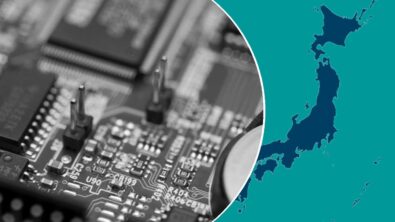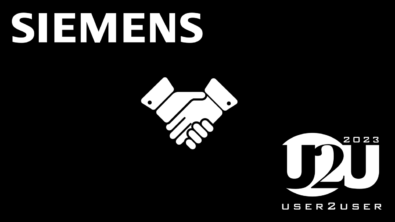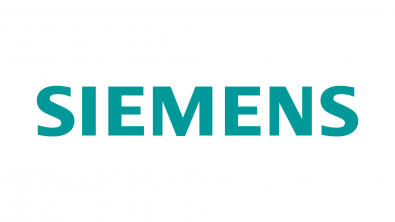Quantum semiconductor research forges ahead with steady breakthroughs

Quantum computing is an emerging technology
Quantum computing promises a new generation of high-performance computers, with a completely novel approach to solve very complex statistical problems using quantum mechanics. It infuses physics with mathematics and computer science to create computing hardware with software, with the end goal of achieving “Quantum supremacy” – solving a mathematical problem that no classical computer can, and that too with impressive speed.
Quantum mechanical effects such as superposition and quantum interference provide a pathway for this novelty technology. This can lead to a wide range of applications that require simulation, optimization or machine learning of complex physical systems, including chemistry, material science, medicine, finance, supply chain and security.
What is at the core of this technology?
Its Qubits (or Quantum bits) represented by quantum particles. They adhere to key properties of quantum mechanics, specifically superposition, entanglement and decoherence.
- Superposition opens the realm for extreme parallelism of computing operations. Qubits can be in a superposition of states, where every quantum state can be a function of two or more states, unlike classical bits that are strictly logical 1s and 0s.
- Entanglement: It enables prediction of a Qubit’s state based on its correlation with measured states of other Qubits that are closely linked to it.
- Decoherence refers to a Qubit state becoming ineffective due to environmental factors like radiation, hence emphasizing the need to increase the reliability and protection of Qubits from external interferences.
Further, there are different types of quantum technology with qubits, using which different processors are under research and development. This includes Gate-based ion trap, Gate-based superconducting, Rydberg atom, Neutral atom and photonic processors. Needless to say, there is so much potential in exploring all these areas for Qubits to reach their maximum potential for quantum computers to solve complex problems faster.
Research is proceeding at a fast pace
McKinsey has identified it as one of the next big trends that could account for nearly $1.3 trillion in value by 2035. There have been significant global investments already. According to Forbes, the US, UK, EU and China have invested substantially, totaling billions of dollars, in addition to private investments.
Research and development is actively happening across quantum’s hardware and software areas. Big tech companies, including IBM, Google, Microsoft, Intel and Amazon, are trailblazing their own paths to create breakthrough technologies.
IBM has a long history in quantum research. They unveiled IBM Quantum System Two, a modular quantum computer, during the IBM Quantum Summit in December 2023, while declaring an comprehensive roadmap that including multi-chip processors. IBM also offers a cloud-based quantum platform that allows researchers to develop and test their quantum software projects.
Google’s Quantum AI, a partnership with NASA and Universities space research association, is working towards creating fault-tolerant quantum computers. They recently declared a milestone in quantum error correction technique. Google forges ahead with its roadmap with the ultimate aim to build a quantum system with 1 million qubits within a decade.
Microsoft is working towards bringing scalable, full-stack and fault-tolerant quantum machines to Azure. This includes novelty with a control chip and cryo-compute core that work cohesively to maintain a stable cold environment for highly efficient qubit operations. Further, Azure Quantum platform, Microsoft’s cloud quantum computing service, provides access to quantum hardware, simulators, and development tools for users to experiment with quantum algorithms.
Amazon is enabling quantum research and software development with Amazon Braket, a fully managed service. This provides technology access from multiple quantum hardware providers and Amazon’s own quantum simulator, allowing users to experiment with different hardware architectures. Recently, AWS unveiled a custom-designed quantum chip that can suppress errors by a factor of 100 using a passive error correction approach.
Intel is working towards creating a full-stack commercial quantum system. In June 2023, Intel announced their newest quantum research chip, Tunnel Falls, and is already developing its next-generation quantum chip expected to be released in 2024.
Many others including Toshiba, Dwave, Quantinuum, Rigetti Computing, Xanadu, Atos Quantum, Baidu, Alibaba, IonQ, Quantum Computing Inc. (QCI), QuEra, are invested in quantum hardware and software research and development.
Siemens EDA is committed enabling the Quantum ecosystem
Siemens EDA provides a broad portfolio of EDA technology including design creation with high level synthesis and edge physical design solutions, design verification with Custom IC, functional and scalable hardware verification solutions, and design to silicon verification with physical, test and yield verification solutions.
A Quantum hardware system requires cryogenic cooling systems to keep the processor at ultra-cold operational temperatures near absolute zero (about -459F), unlike fans used in classical desktop computers. This is to avoid decoherence of Qubit quantum states as explained previously. Accurate design with high reliability is required for all IC circuitry associated with the processor design, including computational, control, memory, clock and data transmission units. Thus, design and verification becomes crucial for such extreme application conditions.
Siemens EDA is partnered with sureCore and Semiwise to enable the creation of cryogenic IPs for use within Quantum control ICs. Siemens’s Analog FastSPICE platform and Siemens’ Solido™ Design Environment software, provided high quality verification capabilities at cryogenic temperatures, empowering sureCore to construct analog circuits, standard cell libraries, and memory designs including SRAM, register files, and ROM, using Semiwise’s cryogenic transistor models.
Read more in our press release >> Siemens collaborates with sureCore and Semiwise to pioneer quantum computing ready cryogenic semiconductor designs
To learn more about Siemens EDA’s Custom IC Verification Solution, visit our home page https://eda.sw.siemens.com/en-US/ic/verification-and-validation/custom-ic-verification/


